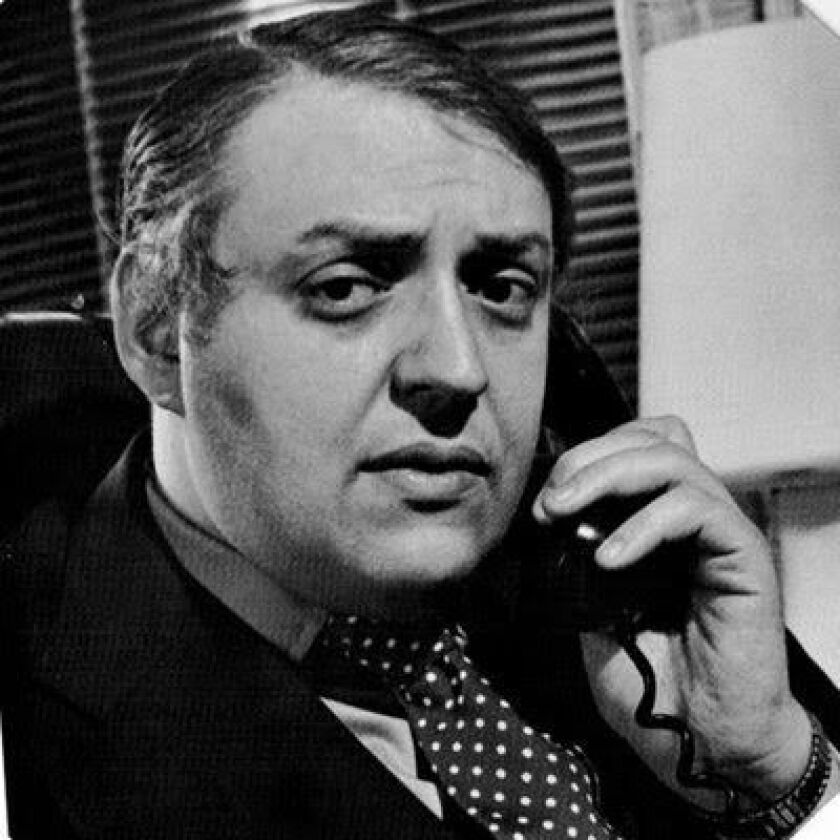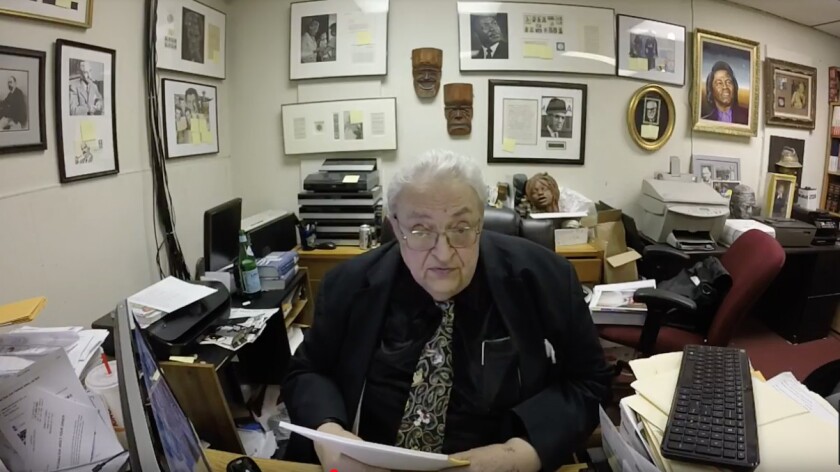Music stars across genres — blues, rock, rap and house — say Jay B. Ross was an honest lawyer who helped them get the money they were due.
At different times, he represented James Brown, Muddy Waters, Willie Dixon, Jerry “Iceman” Butler, Ray Charles, Koko Taylor, Sister Sledge, the Chi-Lites, Dinah Washington, Rufus, gospel queen Albertina Walker and many others.
In addition to his expertise on copyrights and royalties, clients said he kept up on sampling, streaming, video games and the use of artists’ likenesses.
Mr. Ross, 76, who liked to tell the story of how he helped Brown score one of the biggest-ever paydays for a pay-per-view show, died of a heart attack March 1 at his Chicago home, according to his niece Meredith Mandell.
“Jay was No. 1 in my book,” said Gene Chandler, best known for his hit “Duke of Earl.”
“He represented us for about 30 years,” said Marshall Thompson of The Chi-Lites. “We believed in him.”
“He was ‘Mr. Fix-It’ for bad contracts,” said singer Tomiko Dixon, granddaughter of Willie Dixon.
“He protected me,” said singer “Mud” Morganfield, a son of Muddy Waters.
Mr. Ross negotiated his deals on his records “They Call Me Mud” and “Son of the Seventh Son.”
Joseph Morganfield, 53, another Waters son, performs as MoJo Morganfield with the Mannish Boys. He remembers calling his dad’s lawyer for help when he was a hungry little boy, and Waters was on the road.
Morganfield said his mother, now dead, “was an addict. . . . She had gone on one of her binges. I was 8 or 9 at the time. His number was on the bulletin board in the kitchen, so I called him. I said, ‘Hey, me and my brothers and sisters need some food. We’re starving.’ I had no way to get a hold of my dad.”
Mr. Ross “made a call, and, within an hour, we had McDonald’s coming out of our ears.”
He added, “Within a year, my dad had custody of us kids.”
Mr. Ross — resplendent in colorful clothes and bathed in cigar smoke — once starred in an exuberant advertising video with clients including Chandler, Mud Morganfield and Tomiko Dixon. It featured him rapping on a song titled “Sue the Bastards” — his frequent and thundering threat.
Among its lyrics:
“We’ll sue them federal, we’ll sue them state
We’ll sue them in a way they can relate
And after all this, if they still retort,
Why hell, we’ll take them to the Supreme Court.”
The composer credited Mr. Ross with contributing to the early days of house music. Deejay Farley “Jackmaster” Funk said Mr. Ross gave him $1,000 to start the House music label in 1984.
The deejay said that, when he was sued by Isaac Hayes and MCA for basing a house version of “I Can’t Turn Around” on Hayes’ recording of the song, Mr. Ross told him, “There was no way that I could win and advised me to turn over everything to MCA.” He said that saved him years of litigation.
Born Bernard Rosenblatt in Brooklyn, he lost both parents before he turned 2. He was adopted by an aunt and uncle and grew up in Rockford, where he graduated from Rockford West High School before going on to the University of Wisconsin and earning a law degree from the University of Illinois.
Mr. Ross represented “a number of high-profile, African-American blues artists who were victims of Jim Crow racism and had little formal education to navigate the complexities of copyright registration,” said his cousin Meredith Mandell. “A large part of his practice was dedicated to helping these artists and their heirs recover royalties.
“A lot of times, he would buy back [their music rights] and give them at cost or for nothing” to artists or their families, said Jeff Mandell, another cousin.
Tomiko Dixon remembers Mr. Ross teaching what he called “The Flinch.” No matter what the first contract offer was, he said the artist should repeat the number in a loud, insulted tone — and wait to see it raised.
Rachael Cain, whom Billboard once dubbed the “Queen of House Music,” said she attended multiple funeral services for James Brown with Mr. Ross. At one point, Cain said, “Jay just looked at me and said, ‘He’s still the hardest-working man in show business.’ ”
He regularly threw parties to bring together people in Chicago’s music and broadcast community. “He was this guy in his 70s, and he’s showing up at hip-hop concerts and house music” events, said his cousin Steve Mandell.
Mr. Ross liked listening to Jack Benny and other old-time radio stars, said his assistant Oliver Torres.
He is survived by multiple cousins. Services have been held.










